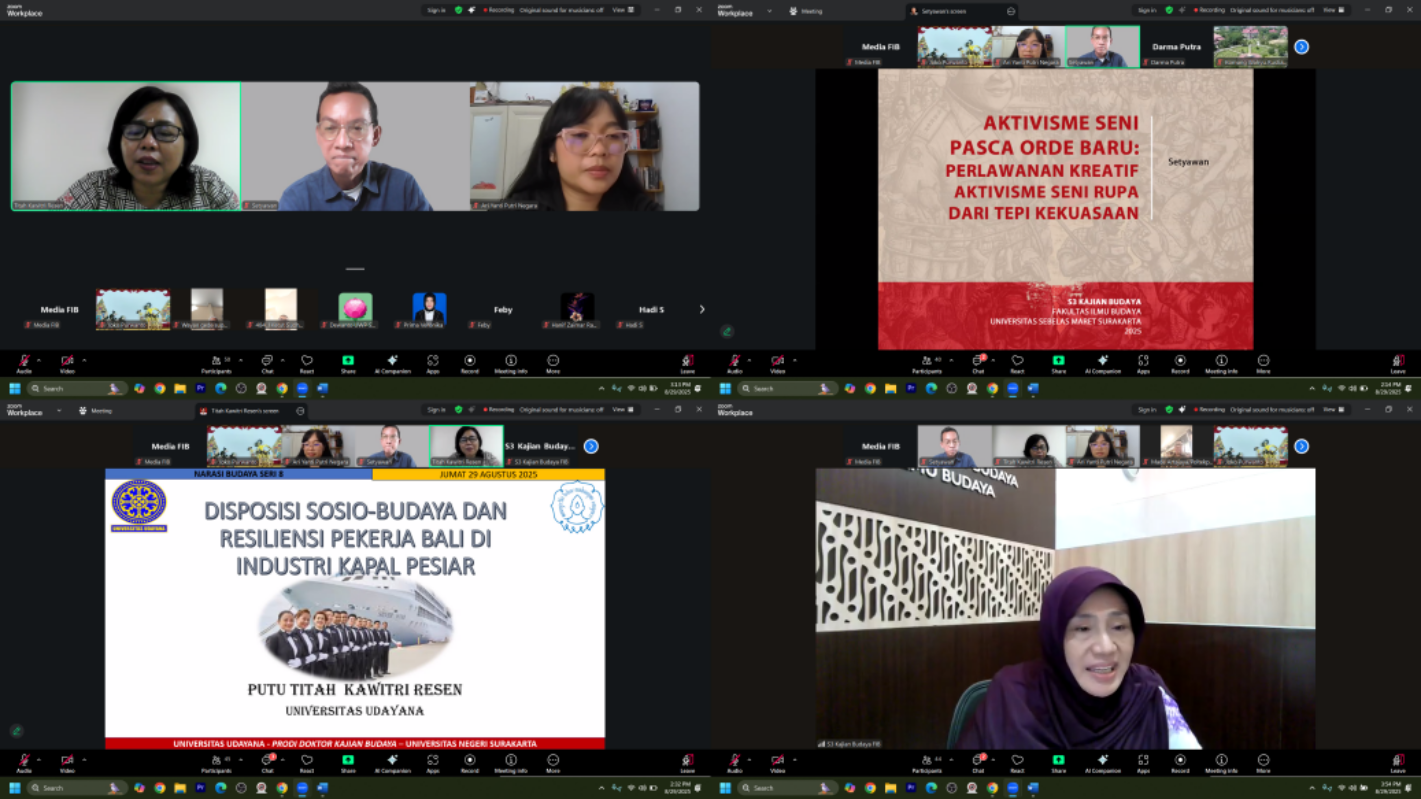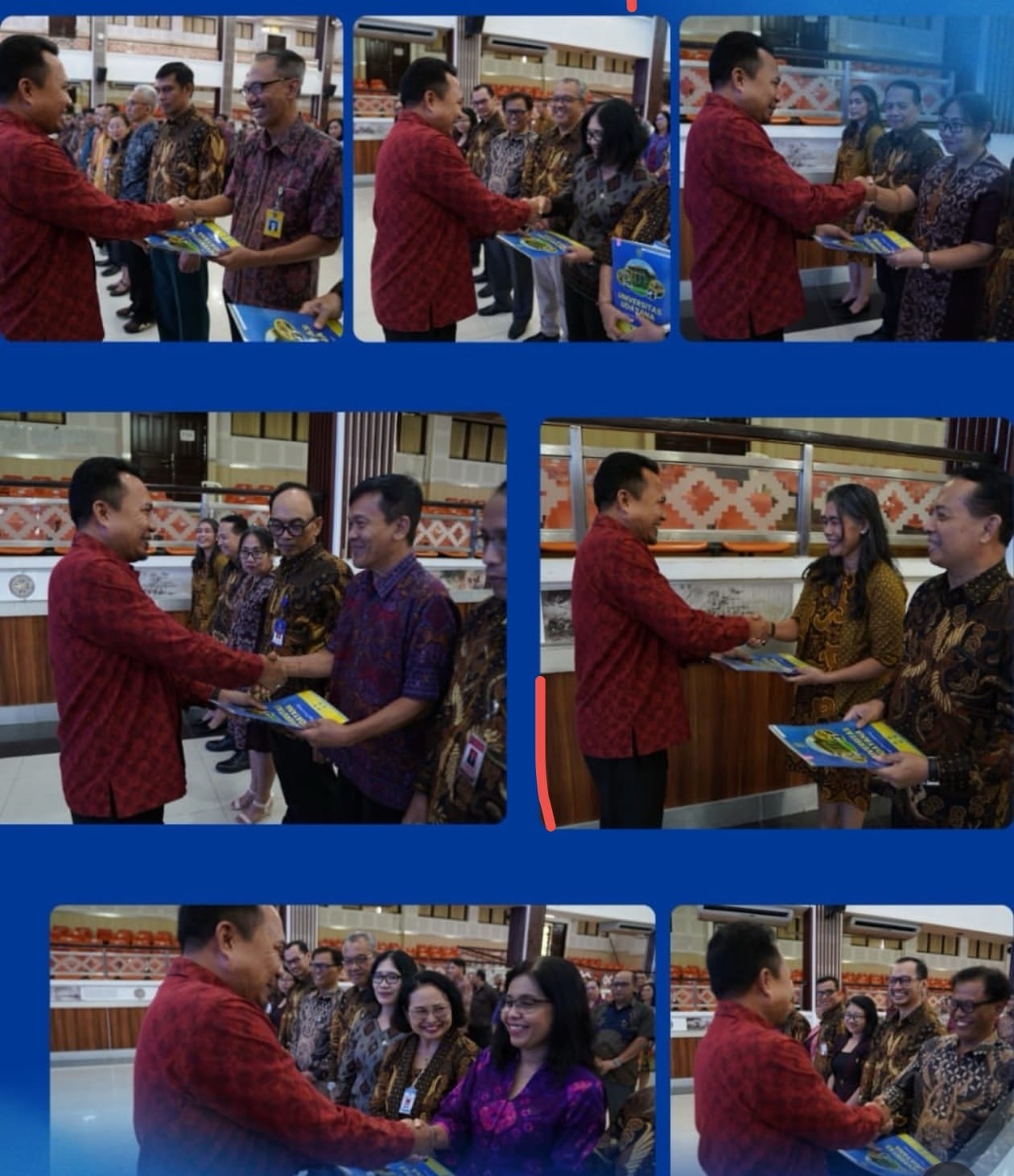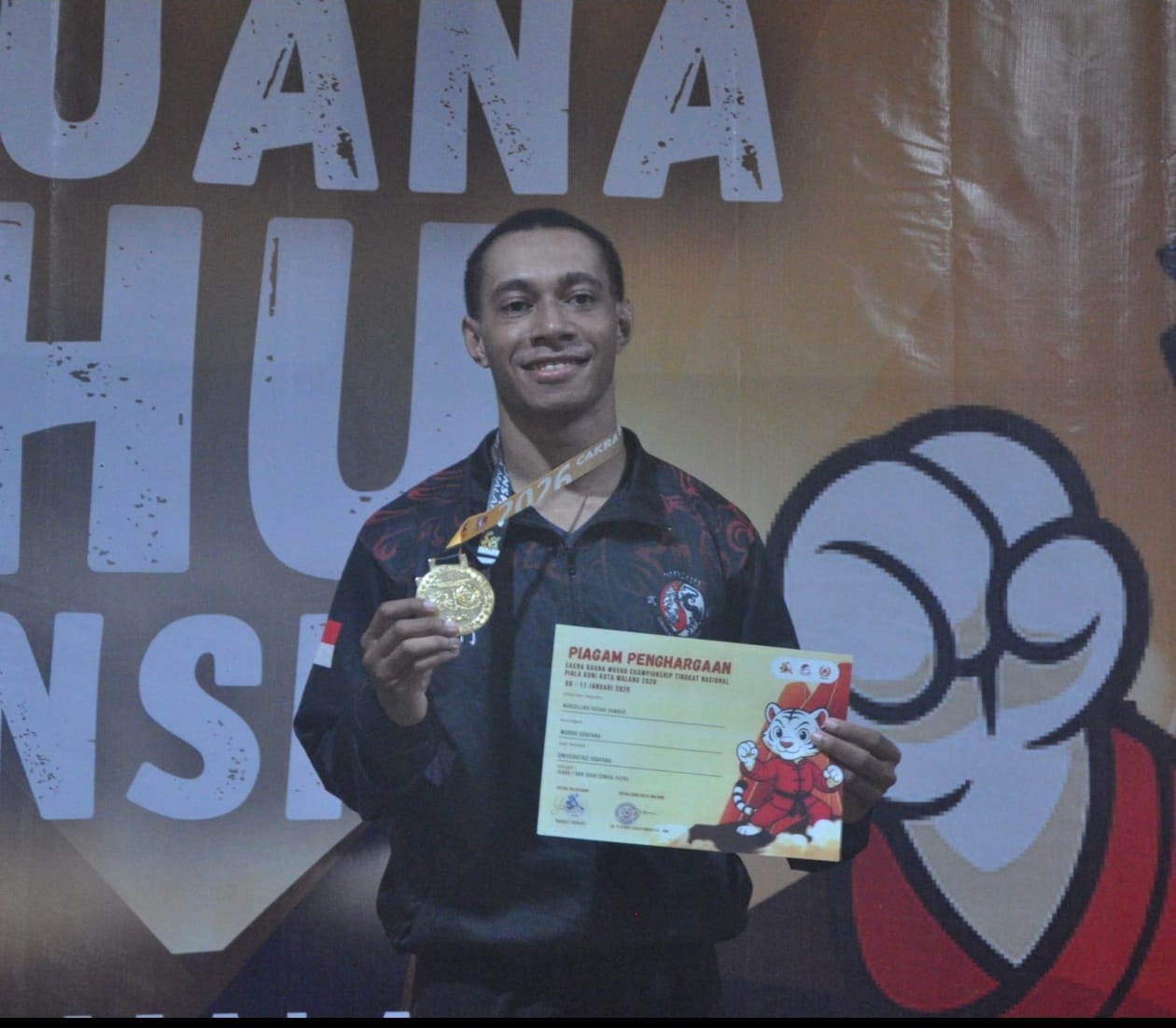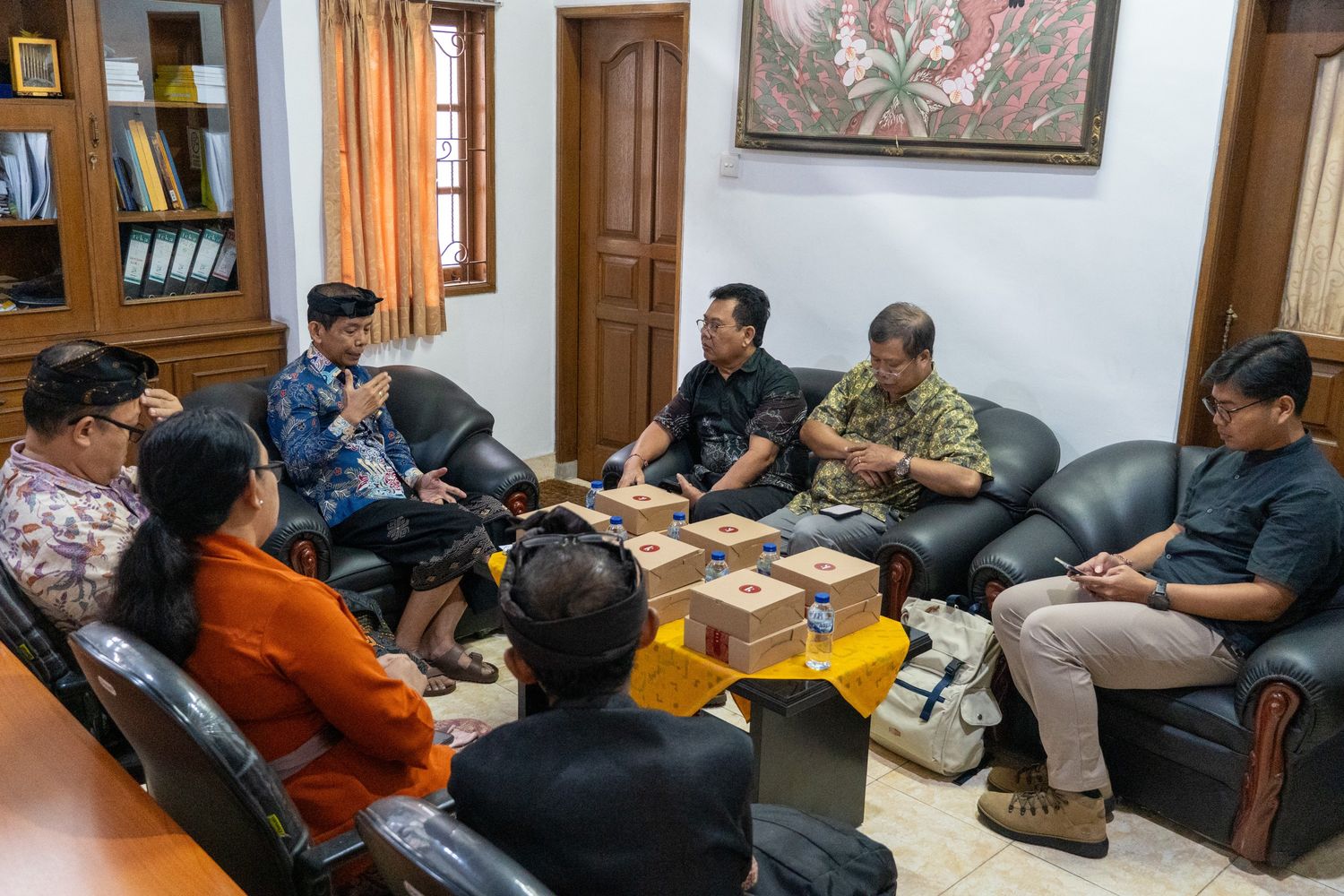The Doctoral Program in Cultural Studies, Faculty of Humanities, Udayana University, Holds Cultural Narratives - 8th Series of Cultural Studies Student Seminars
On Friday, August 29, 2025, the Doctoral Program in Cultural Studies, Faculty of Humanities, Udayana University, in collaboration with the Doctoral Program in Cultural Studies, Faculty of Humanities, Sebelas Maret University, held the 8th National Seminar for Cultural Studies Students online via Zoom. The seminar, themed "Socio-Cultural Dispositions and Resilience of Balinese Workers in the Cruise Ship Industry" and "Creative Resistance in Fine Arts Activism from the Edge of Power," was presented by Dr. Putu Titah Kawitri Resen, S.IP., M.A., representing the Doctoral Program in Cultural Studies, Udayana University, and Setyawan, S.Sn., M.A., representing the Doctoral Program in Cultural Studies, UNS
The seminar was opened by the Coordinator of the Doctoral Program in Cultural Studies, Faculty of Humanities, Udayana University, Prof. Drs. I Nyoman Darma Putra, M.Litt., Ph.D. In his remarks, he expressed gratitude that the cultural narrative could be revived after a brief hiatus. He also stated that while the two topics may seem different on the surface, cultural studies can encompass both within the context of conversation and power. On a cruise ship, we will see how employees can resist without attacking. The second topic, on the other hand, will explore how artists resist through the mind. Both topics are situated within a single context, a constant negotiation between the powerful and the ruled.
In the presentation "Creative Resistance in Fine Arts Activism from the Edge of Power," presented by Setyawan, S.Sn., M.A., he highlighted how art in Indonesia transformed after the 1998 Reformation, no longer merely as aesthetic expression but as a crucial medium for political articulation, ecological critique, and advocacy for the rights of those marginalized during the New Order era. Post-New Order art activism created a new landscape in which art became part of the collective struggle to voice resistance. Art activism emerged as a response to the absence of the state. Artists used graffiti and murals as subversive visual interruptions to soften violence and nurture imagination. The changing socio-cultural landscape post-New Order was marked by a shift from a culture of silence and repression to an "explosion of expression" and public participation. In this regard, artists were seen as epistemic and political agents who used art to generate critical awareness and take action for change.
In her paper entitled "Socio-Cultural Disposition and Resilience of Balinese Workers in the Cruise Ship Industry," Putu Titah Kawitri Resen explains how hegemony shapes worker resilience through the internalization of values and norms considered normal. She highlights work practices on cruise ships as an exploitative economic space, with hard working conditions, long hours, and unequal power relations, which are then normalized as part of the profession. Using Gramsci's concept of hegemony, Titah shows that worker resilience is not simply the strength to face adversity, but the result of the internalization of an ideology that covers inequality with a narrative of morality, loyalty, and social responsibility. This research finds that acceptance and resilience to exploitative conditions constitute an empirical gap from previous studies, while also opening up space for critical reading that art and cultural activism can emerge as forms of creative resistance from the margins of power.
Closing the seminar series, Dra. S.K. Habsari, M.Hum., Ph.D., as the Coordinator of the Doctoral Program in Cultural Studies, Faculty of Humanities, Sebelas Maret University, expressed his deep appreciation to all participants and parties involved for their active participation. He hopes that this event can be a bridge to strengthen more solid cooperation between the Doctoral Program in Cultural Studies, Faculty of Humanities, Udayana University and the Doctoral Program in Cultural Studies, Faculty of Humanities, Sebelas Maret University. So that in the future, various forms of research and academic progress can be created, especially in the field of cultural studies.




UDAYANA UNIVERSITY